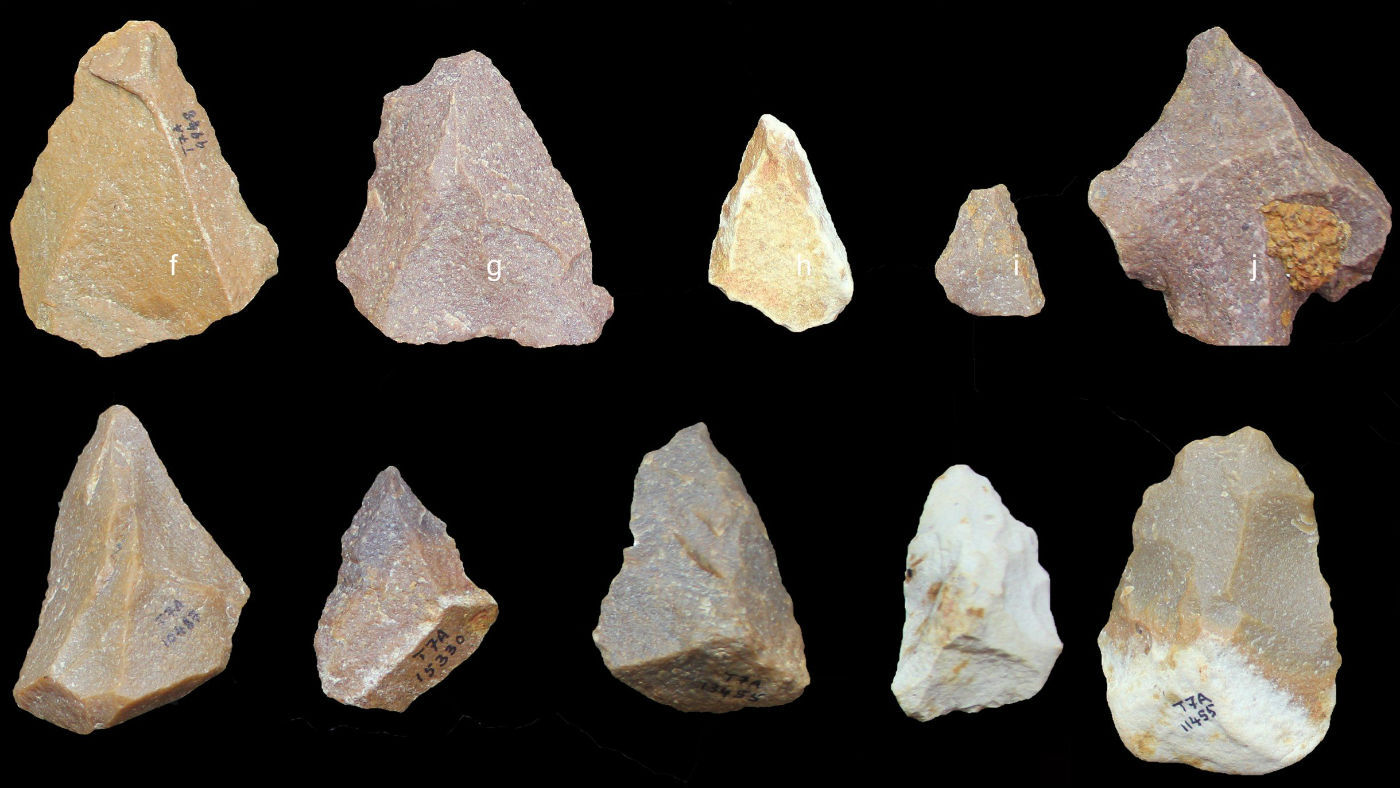Stone Age tools found in India could upend ‘out of Africa’ theory
Discovery of 385,000-year-old artefacts in Attirampakkam challenge common model of prehistoric migration

A free daily email with the biggest news stories of the day – and the best features from TheWeek.com
You are now subscribed
Your newsletter sign-up was successful
Stone tools fashioned by early humans up to 385,000 years ago in India could upend a common narrative about the origins of modern humans.
The well-known “out of Africa” theory posits that homo sapiens, who originated in East Africa between 400,000 and 300,000 years ago, brought their advanced stone tools as they dispersed beyond Africa to Europe and Asia.
Previous studies have suggested that this Stone Age technological revolution arrived on the Indian subcontinent “between 140,000 years and 46,000 years ago,” says Quartz, coinciding, in theory, with homo sapiens’ migration from Africa.
The Week
Escape your echo chamber. Get the facts behind the news, plus analysis from multiple perspectives.

Sign up for The Week's Free Newsletters
From our morning news briefing to a weekly Good News Newsletter, get the best of The Week delivered directly to your inbox.
From our morning news briefing to a weekly Good News Newsletter, get the best of The Week delivered directly to your inbox.
However, using new infrared technology, archaeologist Shanti Pappu and her team analysed stone tools discovered at Attirampakkam, a prehistoric site in south-east India, and dated the artefacts to between 385,000 and 172,000 years ago.
Their analysis, published in the latest edition of Nature, “challenges the view, backed by most researchers, that modern humans brought these technologies to India less than 140,000 years ago,” says Quartz.
The findings open up several possible interpretations. One is that homo sapiens were migrating beyond East Africa hundreds of thousands of years earlier than previously thought.
This theory is buoyed by the recent discovery of homo sapien fossils and tools dating back 300,000 years in Morocco.
A free daily email with the biggest news stories of the day – and the best features from TheWeek.com
However, the Attirampakkam artefacts could also suggest that pre-modern human species were using similar technologies to those found in Africa prior to any interaction between the two groups.
Scholars have long argued for the possibility that “different human groups independently developed this novel way of making stone tools,” says Scientific American.
-
 ‘States that set ambitious climate targets are already feeling the tension’
‘States that set ambitious climate targets are already feeling the tension’Instant Opinion Opinion, comment and editorials of the day
-
 Mixing up mixology: The year ahead in cocktail and bar trends
Mixing up mixology: The year ahead in cocktail and bar trendsthe week recommends It’s hojicha vs. matcha, plus a whole lot more
-
 Labor secretary’s husband barred amid assault probe
Labor secretary’s husband barred amid assault probeSpeed Read Shawn DeRemer, the husband of Labor Secretary Lori Chavez-DeRemer, has been accused of sexual assault